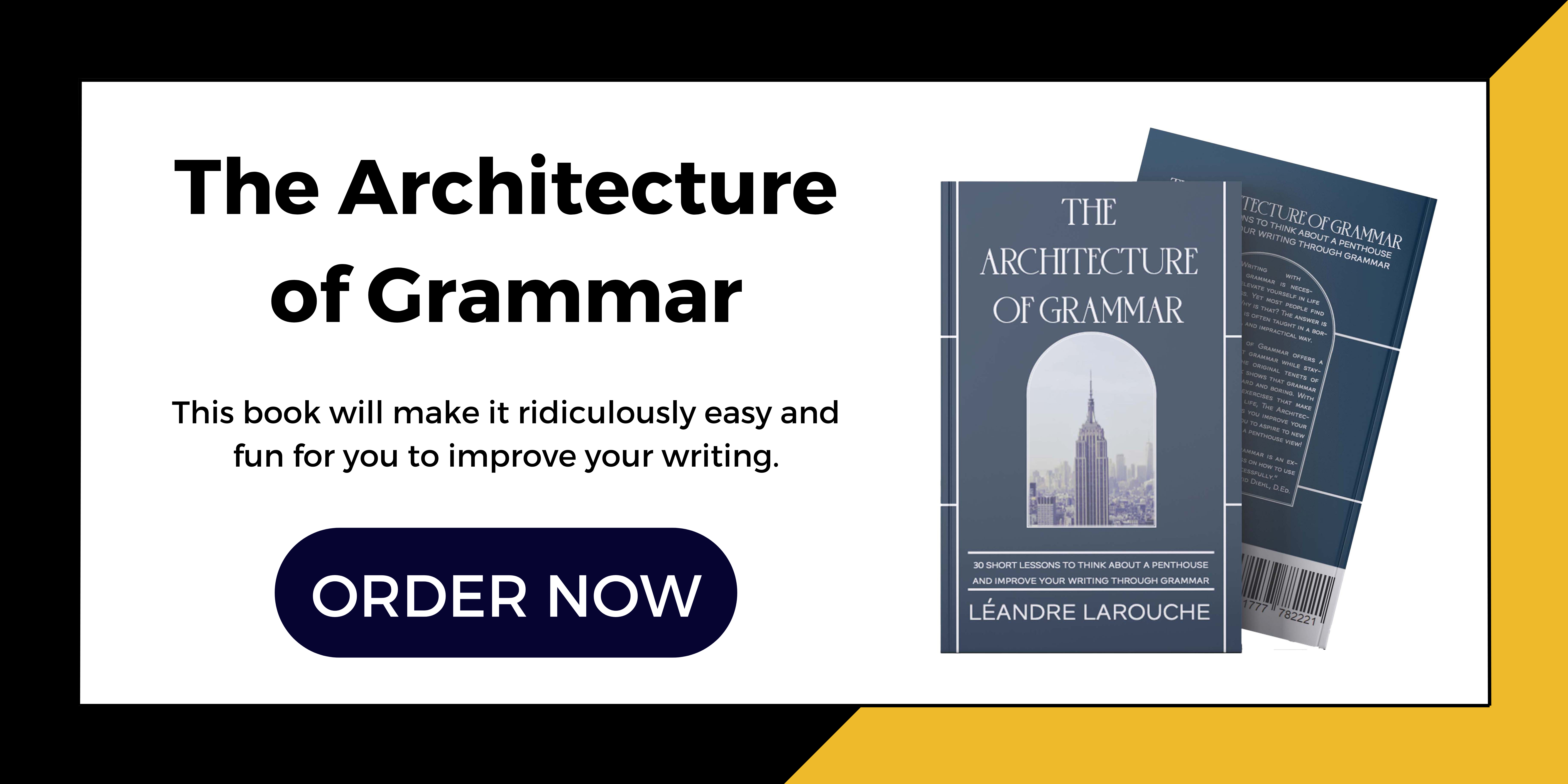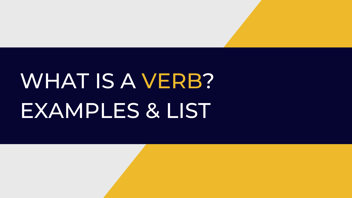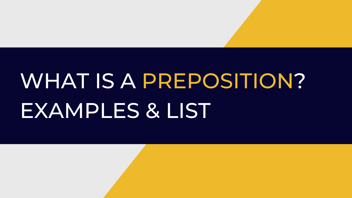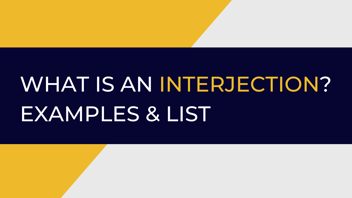What is a Noun? Definitions, Examples, and a Comprehensive List
A noun is a part of speech (POS), and parts of speech are incredibly important in writing. Each part of speech fulfills a purpose in a sentence, and not all parts of speech are created equal. Some parts of speech make our writing stronger while others make it weaker. So we must be careful using them.
In this blog post, we will discuss the definition of a noun, provide examples, and list them so that you can start using them in your own writing.
So, what exactly is a noun? Let's find out!
Nouns Definition
A noun is a content word, a specific type of word that creates an image in your readers' minds. Nouns are "strong words" because they enrich our writing instead of making it heavier as function words do.
To truly understand nouns, we must understand sentences. Sentences are stories, and every story has characters, objects, and environments. Nouns are the part of speech that describes these characters, objects, and environments.
Good writing boils down to knowing which words to use and when. As such, some words are better than others, but thankfully, nouns are one of these words you don't need to worry about overusing. You need at least one noun in every sentence—unless you deliberately break the rules for style.
Nouns are words that refer to people, places, things, or ideas. They can be classified in different ways. The most common way to classify them is by countable and uncountable nouns.
- Countable nouns are the ones we can count, like "chair," "book," or "car."
- Uncountable nouns are the ones we cannot count, like "water," "sand," or "air."
Another way to classify them is common and proper nouns.
- Common nouns are the ones that don't have a specific name, like "city," "man," or "animal."
- Proper nouns are the ones that have a specific name, like "New York," "John," or "Tiger."
We can also classify them by concrete and abstract nouns. Concrete nouns are the ones we can see and touch, like "table" or "chair." Abstract nouns are the ones we cannot see or touch, like "happiness" or "sadness."
Here are some examples of nouns:
- people: woman, man, child, teacher
- places: home, school, hospital, park
- things: table, chair, car, computer
- ideas: love, anger, happiness, fear
Why Are Nouns Important?
Nouns matter because they contain sentences' content. Without nouns, sentences have no meaning. Moreover, the quality of the nouns we use determines the quality of our writing. Not all nouns are created equal: some words are precise, while others are imprecise. The more precise your nouns, the better your writing.
Nouns hold the key to effective communication. As content words, they help us describe the world around us, and descriptive writing helps readers picture what is writing about, which strengthens our writing exponentially. As such, we carefully pick the nouns we choose to use in our writing.
Additionally, because nouns contain sentences' content, they also set the mood. Nouns can have a positive, negative, or neutral connotation. They can also evoke a wide variety of emotions such as awe, anger, sadness, aggression, and so forth.
Nouns with a positive connotation:
- truth
- faith
- affordable
- joy
- wonder
- pleasure
- friend
Nouns with a negative connotation:
- lie
- despair
- cheap
- jadedness
- hatred
- dislike
- crony
Nouns with a neutral connotation:
- person
- animal
- vehicle
- guest
- house
- building
- colleague
Nouns Examples
Abstract nouns are words that refer to ideas or concepts. They cannot be seen or touched.
- Common nouns
- Proper nouns
- Concrete nouns
- Abstract nouns
- Collective nouns
- Countable nouns
- Uncountable nouns
What are Common Nouns?
A common noun is a word that refers to a person, place, thing, or idea. It is not the name of a specific person, place, thing, or idea. It is always written with a capital letter.
Common Nouns List
- woman
- man
- child
- teacher
- home
- school
- hospital
- park
- table
- chair
- car
- computer
- love
- anger
- happiness
- fear
What are proper nouns?
A proper noun is the name of a specific person, place, thing, or idea. It is always capitalized. An abstract noun is a word that refers to an idea, a feeling, or a quality. It is not a concrete noun.
Proper nouns list
- New York
- John
- Tiger
- Mrs. Smith
- Christmas
What are concrete nouns?
A concrete noun is a word that refers to a physical object. It can be something that you can see, touch, smell, or taste.
Concrete Nouns List
- book
- table
- chair
- car
- tree
What is an Abstract Noun?
An uncountable noun is a word that refers to something that cannot be counted. It is always written with a capital letter.
What is a Collective Noun?
An uncountable noun is a word that refers to something that cannot be counted. It is always written with a capital letter.
What is an Uncountable Noun?
An uncountable noun is a word that refers to something that cannot be counted. It is always written with a capital letter.
Uncountable Nouns List
- air
- sand
- water
- music
What is a Countable noun?
A countable noun is a word that refers to something that can be counted. It can be either singular or plural.
Countable Nouns List
- chair
- book
- car
- tree
How Do You Use Nouns?
Here are some examples of nouns in sentences:
- The woman went to the store. (subject)
- I have a cat. (object)
- They live in New York. (object of preposition)
Nouns are used as the subject or object of a verb. They can also be modified by adjectives. Here are some examples:
- The woman is walking. (subject)
- I saw the man. (object)
- The big dog is barking. (adjective + noun)
- We went to the park. (direct object)
- I have a fear of heights. (object of preposition)
Nouns can be singular or plural. To make a singular noun plural, we usually add an -s to the end of the word.
Examples:
- cat → cats
- book → books
- table → tables
However, there are some irregular plural nouns that do not follow this rule.For example:
- child → children
- person → people
- mouse→ mice
Some nouns can be both singular and plural. For example:
- deer → deer
- fish → fish
You can use a noun as the subject or object of a verb. For example:
- The woman went to the store. (subject)
- I have a cat. (object)
Nouns can also be modified by adjectives.
Nouns List (14,500+)
Here are 2 lists of nouns you can use in your next writing project:
Common Nouns List (12,000+)
Here is a list of common nouns you can use in your next writing project. Click here for a full list of more than 12,000 common nouns.
Proper Nouns List (2,500+)
Here is a list of common nouns you can use in your next writing project. Click here for a full list of more than 12,000 common nouns.
-png.png)






